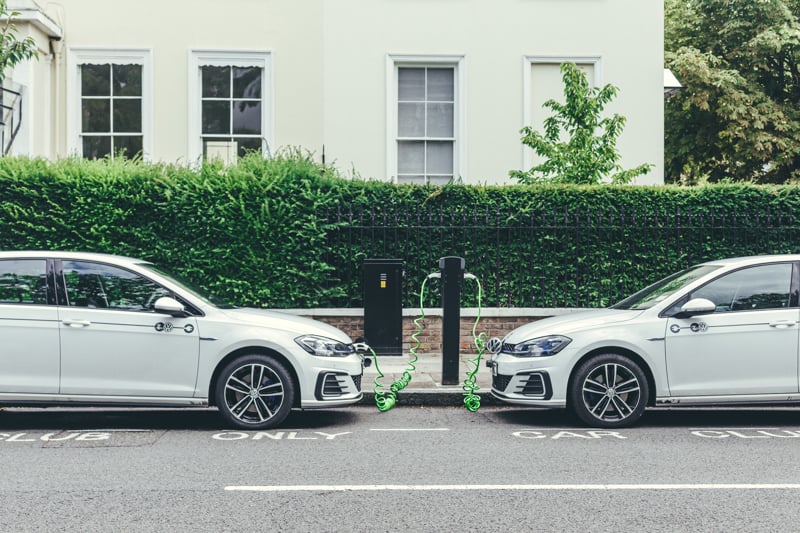
-
What are car clubs?
-
What benefits do they have for fleets?
-
How can fleets get the most out of car clubs?
Flexibility is becoming an increasingly important asset for staff travel, as their mobility needs change and the requirement to cut emissions and costs intensifies.
One of the relatively recent developments which can help achieve this flexibility is the car club, which has seen its popularity among the public grow significantly in recent years.
CoMoUK, a national charity for the public benefit of shared transport such as car clubs and bike share schemes, says that in 2016 the total number of car club members in Great Britain was 234,074. By March of this year this had risen 235% to 784,870.
The number of vehicles offered has also risen: in March it stood at 4,859, 18% higher than in 2016.
This growth in interest from the public has been reflected by the number of organisations using car clubs for staff travel, says Paul McCorkell, director of business rental UK and Ireland at Enterprise, which owns Enterprise Car Club.
“We’re seeing an increase in demand to reduce grey fleet, now a key business mobility priority, as well as cut emissions, number of miles driven and cost,” he adds.
Here, we look at how the schemes work, how they can benefit fleets and how organisations can get the most out of them.
What are car clubs?
In essence, car clubs are a form of short-term vehicle rental, but one which offers access to cars for as long as the user needs them, whether that is for 30 minutes or a day or more.
Typically, they are booked either through a web portal or a smartphone app, with registered users able to check vehicle availability immediately. After booking, they can unlock the cars with a smartcard.
There are three main operating models: back-to-bay, which is the most common form and sees cars returned to their own designated parking place; back-to-area where the car must be returned to a small, designated area, usually a street or two; and the newer one-way/flex model, where a car can be taken on a one-way trip and parked on-street wherever it is legal to do so.
It is becoming increasingly common for organisations to partner with car club operators to allow them to have vehicles – usually based at their own premises – available for their sole use, as well as using the supplier’s technologies and back-office support.
The main national operators are Zipcar, Enterprise Car Club, Ubeeqo, Co Wheels, Co Cars and the car club sub-section of Hiyacar.
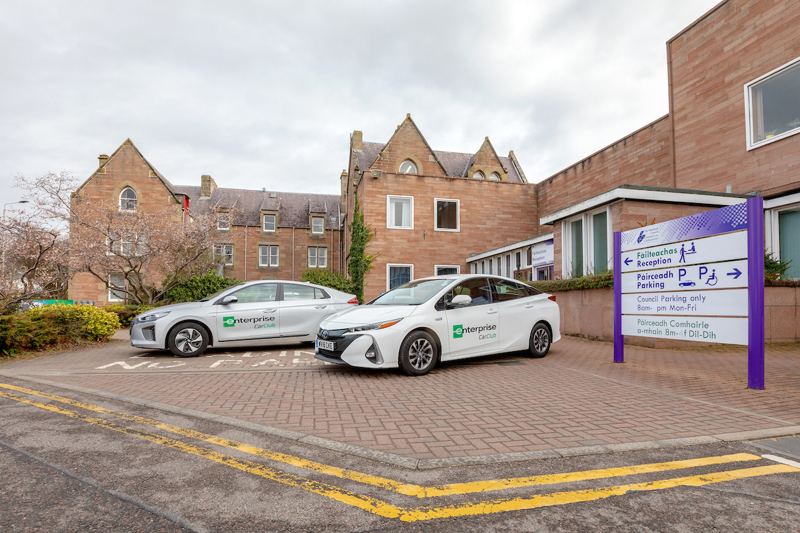
What benefits do they have for fleets?
In a word, savings – in expenditure, CO2, number of vehicles operated and admin.
“We did a full review of our grey fleet in 2018 and found that it accounted for 82% of the council’s travel costs in the 2016/217 financial year,” says Andrew Morgan, fleet administrator at Highland Council.
“More than six million miles had been claimed for through expenses, so we knew something had to happen with regards to that, and the key outcome was our car club.”
The council, which covers an area the size of Belgium, uses the AMAP (approved mileage allowance payments) rate of 45ppm to reimburse drivers using their own cars for business, meaning its annual grey fleet bill was then nearly £3 million.
After introducing between 50 and 60 car club vehicles spread around 20 council sites, in the 2021/22 financial year, the grey fleet bill had fallen to around £1.15m.
Morgan says other factors such as the Covid lockdown and increased use of technologies, such as Microsoft Teams, also played a part in the savings, but the car club was a “good contributor”.
He adds: “Over the past three years, we’ve completed more than two million miles in car club vehicles, with a saving of roughly 166 tonnes of CO2 compared with using grey fleet vehicles.”
CO2 savings happen as car club vehicles tend to be newer and lower emitting than grey fleet cars.
In its 2021 Car Club Annual Report, CoMoUK found all car club vehicles are less than five years old with 65% sub-two years, and their average CO2 is 27% lower than the average UK car.
Lancaster City Council found the likely savings in mileage reimbursement could be used to fund a zero-emission car club scheme for its employees.
In 2018/19, 154 council employees claimed 105,000 business miles producing an estimated 31 tonnes of CO2. The cost to the council for the mileage claims came to £47,144, rising to £50,000 in 2019/20.
By using the redirection of funds model, the council found it could partner with Co Wheels to launch a fully-electric car club without the local authority incurring any additional costs.
It was able to invest £114,000 in buying six electric vehicles (EVs), with £70,000 spent on improving charging infrastructure to support the electric fleet network.
As part of its process of understanding the business rationale behind casual mileage claims and why personal cars were being used rather than the three pool cars already available at the town hall, it found this was primarily down to convenience because of an insufficient number of pool cars and the inflexibility of the booking system.
Both issues were addressed through the new booking system and the increased number of cars introduced through the car club.
However, McCorkell says Enterprise’s typical experience of on-site car clubs is they reduce the number of vehicles compared with pool cars, in some cases by as much as a quarter.
“Customers who deploy car clubs also say it frees up parking because there are fewer pool cars and because many employees then use active or public transport to get to the office instead of their own car, knowing they no longer need to use their car during the day for work,” he says.
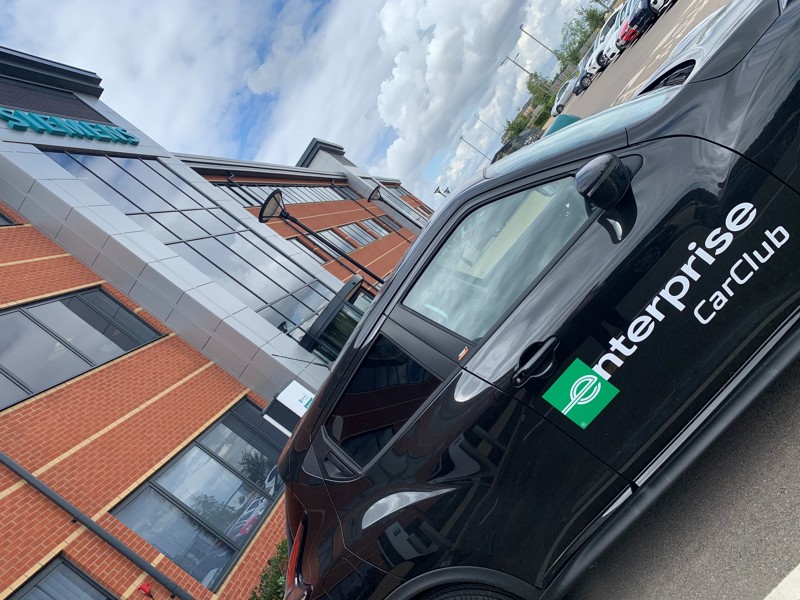
Siemens UK is one of the organisations which was able to cut the size of its 20-strong pool car fleet by replacing them with 14 dedicated Enterprise Car Club vehicles at its sites in Lincoln and Aberdeen. It now has a further two at its Manchester head office. These can be booked for hourly or daily rental.
“Our key objectives for the car club programme were reducing CO2 output, improving vehicle utilisation, enhancing our use of digital processes and giving our employees a flexible mobility option,” says Ewan Stafford, supply chain development expert at Siemens, who has been responsible for managing and supporting the integration of Enterprise Car Club across all its sites and locations.
“We’ve achieved all of those and we’ve seen an evolution in employee behaviour as drivers think more carefully about how, when and why they travel,” he adds.
This last point is reinforced by a trial at Imperial College London which showed that many employees opted to commute by bike, public transport or walk when there was a car club vehicle at the office they could use either for business or personal trips.
There are also safety, compliance and admin gains for organisations which utilise car club vehicles to replace grey fleet vehicle use.
Although many fleets impose conditions covering factors such as vehicle age and insurance on what personal vehicles can be used for business travel, there is a lack of control compared with employees using company vehicles.
As grey fleet vehicles tend to be older, they may lack the modern safety equipment of newer car club vehicles, increasing risk.
Car club vehicles also reduce the admin associated with ensuring grey fleet vehicles are compliant with company policy, as most of the management functions are carried out by the car club partner.
This also suits employees, says McCorkell. “Another key factor driving car club uptake is that many employees don’t want to use a personal car for business, especially as they’re facing high fuel, insurance, maintenance and repair costs,” he adds.
How can fleets get the most out of car clubs?
Analysing data and acting on the findings are key, according to Morgan. “I don’t think our car club would be anything near what it is now without actually looking at where the hotspots for travelling are,” he says.
“When we were setting it up, we looked at our grey fleet mileage reimbursements and tied that up against location. Wherever we saw a high mileage reimbursement we decided to trial two or three cars there and see how they went.
“I don’t think we pulled out of any sites completely, because the cars were just snaffled up.”
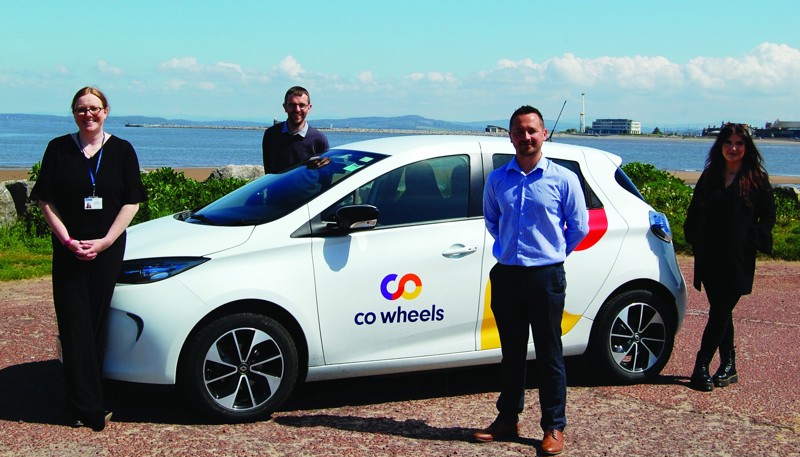
As well as grey fleet mileage reimbursement, the council also wanted information on where people were travelling to and it gathers this through a box on the reservation screen of the booking system.
It has also carried out numerous staff surveys around car club and grey fleet as a whole, while Morgan says the management information that comes from a car club is “fairly rich”.
“You have to react to that data as well – it’s all very well doing nice-looking reports, but you have to act on the information,” he adds.
The management information provided by Co Wheels, for example, includes CO2 saving and CO2 avoidance, activity duration, fuel saving benefits, popular destinations and app usage locations.
Siemens UK gathers data through its employees’ Public Key Infrastructure (PHI) smart ID cards which are used to book and unlock the car club vehicle.
This provides insights on who is booking the vehicles and for how long to enable further efficiencies, for example when employees book a car club vehicle for eight hours to travel just five miles.
Siemens UK’s membership of the Enterprise Car Club scheme also means staff have access to the organisation’s 1,500-strong on-street UK fleet, which are usually used by the public.
Organisations which have their own car club arrangements can also make those vehicles available for use by the public in the evenings and at weekends to gain greater value from the arrangement.
Lancaster City Council has taken this step to gain further revenue from its assets when not in use.
“Not only would this contribute to the cost of the scheme, but it also provides an inexpensive way for residents to access new, greener forms of transport,” says Kevin Frea, cabinet member for the climate emergency at Lancaster City Council.
“By using an EV instead of a petrol or diesel car, people will not only be helping us to reduce CO2 emissions, but also contributing towards improving local air quality.”








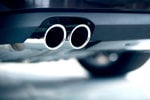




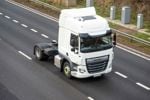






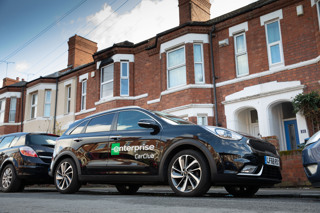
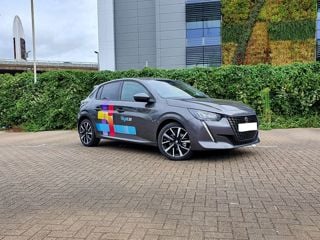
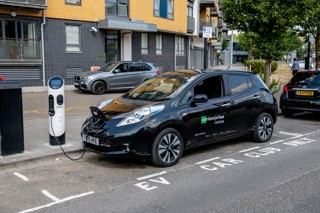
Login to comment
Comments
No comments have been made yet.